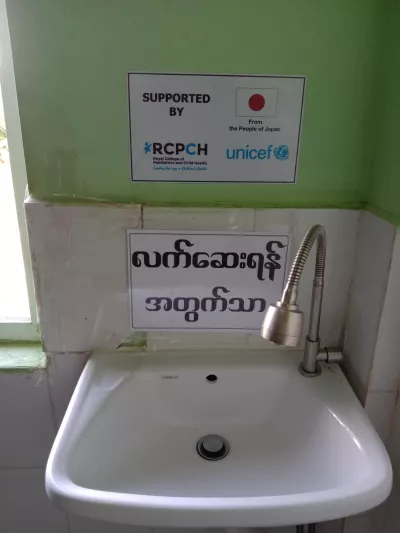When the scale of COVID-19 around the world intensified and became clear between February and March 2020, RCPCH Global volunteer teams and mentors were repatriated to the UK under government guidance. We were concerned at that stage that COVID restrictions would severely constrain our ability to work in other parts of the world, and at a time when the pandemic would mean our help was needed more than ever. It was especially concerning for low-income countries with fragile health systems and vulnerable populations.
...we have increased our support to clinicians and health systems struggling to maintain normal neonatal and paediatric care services
As it turned out, over the last nine months, RCPCH Global has actually increased in scale and expanded the footprint of our work, in collaboration with national governments, ministries of health, paediatric partner organisations and donor agencies.
We have supported humanitarian responses to COVID-related pressures on health systems and facilities, and we have increased our support to clinicians and health systems struggling to maintain normal neonatal and paediatric care services as COVID has eaten up ever greater amounts of precious scarce health care resources.
To give some highlights:
In Myanmar, we’ve worked in partnership with UNICEF to plan and deliver critical new infrastructure and equipment – including gravity-feed water systems and oxygen concentrators – to many of the hospitals in which we work programmatically. Hospitals with no prior access to reliable reserves of clean water now have that key component of infection prevention and control, itself vital to the control of COVID-19 within facilities, and the survival and wellbeing of hospitalised newborns and children.
In Rwanda, we have worked with the Rwanda Paediatric Association and the Rwanda Biomedical Centre to support paediatric COVID-19 guidelines and to monitor rates of admission at programme hospitals to assess the impact of the pandemic on routine care demand and delivery, in order to support rationalised care delivery and workforce planning.
In Sierra Leone, we have worked across all government hospitals in the country to refresh infection prevention and control measures, and to maintain the focus on emergency paediatric care quality improvement in the midst of growing public concern for COVID-19.
These activities are in addition to our existing national programmes of health system strengthening, working across government hospital networks to improve quality of perinatal, neonatal and paediatric care, and reducing mortality among newborns and children. We have also developed a new work programme addressing neonatal care and neurodevelopmental delay in young children in Lebanon.
Overall, the pandemic has presented us at RCPCH Global with distinct challenges, as it has everyone. But it has also given us the opportunity to show how core clinical systems strengthening, the heart of our programmes, can be a solid platform on which to rapidly build and support outbreak response.
Find out more about RCPCH Global and how you can get involved










